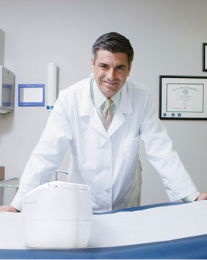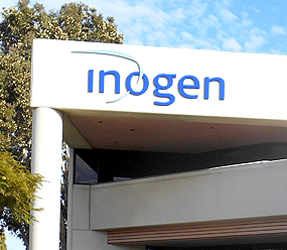The symptoms of lung disease can sneak up on you over time and you might not recognize them when they first appear. Some people may think that they are struggling to breathe because of age or because they are out of shape, when in fact they are experiencing the early signs of lung disease. Lung disease symptoms can often begin with a general lack of energy, followed by more specific lung issue symptoms.[1] If you are wondering, “What are the symptoms of lung disease and how can I recognize them?” read on to learn more and do not hesitate to seek medical attention if you find you are struggling to breathe easily.
What are the Warning Signs of Lung Disease?
These questions are meant for new patients, or for people who may be unsure if they need to seek treatment for their difficulty breathing. This is only for your own reference. Only your doctor can diagnose lung disorders and discuss potential reasons for your breathing difficulties. If you answer yes to more than one of these questions, you should speak to your doctor.
- Do you have a chronic cough? A cough that has lasted for eight weeks or longer is considered chronic[1]
- Do you experience shortness of breath after little or no exertion or that that doesn’t go away after exercising? Has your shortness of breath gotten worse when you have been sick?[1]
- Do you have mucus production when you cough that has lasted a month or longer?[1]
- Do you experience noisy breathing or wheezing?[1]
- Are you coughing up blood?[1]
- Are you experiencing unexplained chest pain that lasts for a month or more? Is it worse when you breathe in or cough?[1]
- Do you smoke now, or were you previously a smoker?[2]
- Do you have a family history of emphysema or chronic bronchitis?[2]
- Do you live or work in the presence of excessive amounts of dust, chemicals, or other airborne irritants?[2]
Why You Should Take Lung Disease Symptoms Seriously
Lung disease can progress quickly and becomes more and more serious the longer it is allowed to advance untreated. As such, it is vital that you be aware of any lung issue symptoms you should look out for, as well as how to spot restrictive lung disease symptoms and obstructive lung disease symptoms. So, what are the symptoms of lung disease? The following symptoms are indicative of lung disease, though your symptoms may vary depending on the type and severity of your lung issues.[1]
- Chronic cough lasting for eight weeks or longer
- Shortness of breath that doesn’t go away after exercising, or that you have after little or no exertion.
- Labored or difficult breathing—the feeling that it is hard to breathe in out.
- Chronic mucus production that has lasted a month or longer
- Noisy breathing or wheezing is a sign that something unusual is blocking your lungs’ airways or making them too narrow.
- Coughing up blood may be coming from your lungs or upper respiratory tract. Wherever it’s coming from, it signals a health problem.
- Unexplained chest pain that lasts for a month or more—especially if it gets worse when you breathe in or cough.
Inogen Can Help with Your Lung Disease[3]
The majority of lung disease treatments are focused on helping you get the oxygen you need so you can breathe better. For this reason, oxygen therapy is a treatment that provides supplemental or extra oxygen. According to the American Lung Association, supplemental oxygen improves sleep, mood, mental alertness, and stamina, and allows individuals to carry out normal, everyday functions.[4]
If your doctor recommends supplemental oxygen for your lung disease symptoms, Inogen can help. Our innovative portable oxygen concentrators are small and lightweight, and provide travel portability for a patient’s active lifestyle. Designed to be used at home or on the go, Inogen’s portable oxygen concentrators provide you with peace of mind and reduced breathlessness when performing activities outside the home. Ask your doctor if a portable oxygen concentrator is right for you, and contact Inogen today to find out how our products may be your source for oxygen at home or away, all day, every day.
References
- Warning Signs of Lung Disease | American Lung Association
- https://www.lung.org/lung-health-diseases/lung-disease-lookup/copd/symptoms-diagnosis
- Bower et al-Performance of Demand Oxygen Systems; Chest 1988;94;77-80; DOI 10.1378/chest.94.1.77; Performance of a Demand Oxygen Saver System during Rest, Exercise, and Sleep in Hypoxemic Patients – CHEST (chestnet.org)
- https://www.verywellhealth.com/the-benefits-of-oxygen-therapy-914838










